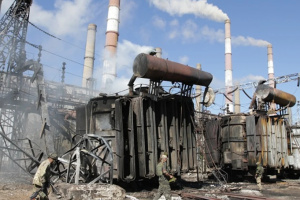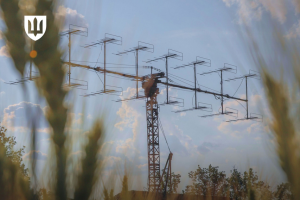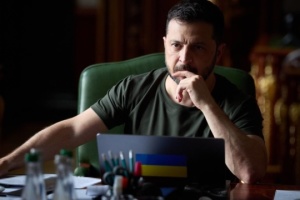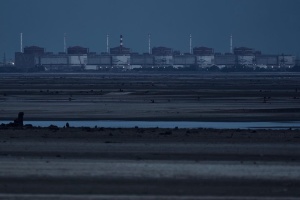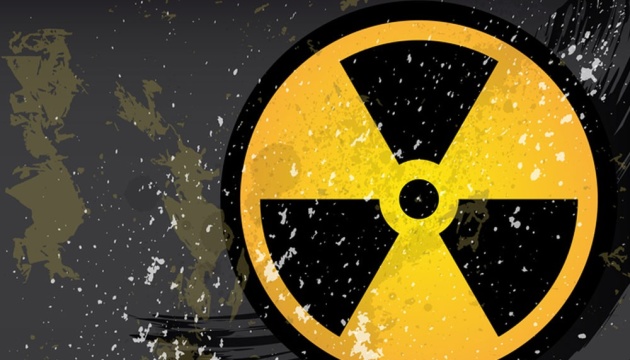
Nuclear and gas blackmail: Russia trying to destabilize EU and US
Russia has been unsuccessfully leveraging the “weaknesses” of a democratic society, namely, a peaceful transition of power and accountability to voters. Putin’s regime is trying hard to push the topic of rising prices and the impoverishment of nations in the West. Its ultimate goal is to cause the fall of the governments of European countries and the ensuing re-elections to divert the Europeans’ attention from foreign policies and the events abroad.
Let’s talk about why Ukraine should pay special attention to this indicator and whether this strategy of Russia will be able to impact the unity of European partners in their support for Ukraine.
What are Russia’s means of intimidating the world?
Before February 24, Russia didn’t expect the colossal levels of Western countries’ support for Ukraine’s army and economy. That is why the Kremlin’s прибічники have now resorted to straightforward blackmail and are trying to turn the spotlight away from the “Ukrainian question” and to domestic problems. For that purpose, the Kremlin created three “instruments of war,” which are supposed to put an end to support for Ukraine.
The first “instrument” is the question of gas. For the umpteenth time in its history, Russia is using gas blackmail, threatening to cut or even completely end gas supplies to European countries. In line with those goals, Russia has closed the Nord Stream for maintenance and started sending intimidating letters to the German government about “force majeure events.”
Russian media, which infiltrated European information space, daily spread the news of a “cold and lethal winter looming over Europe.” Their plan is for such threats to impact Europeans, who would worry about their well-being and pressure their governments and go out on protests.
Why is there nothing to worry about? Firstly, it’s important to understand that Russia is not going to let go of its most stable source of income. If it hadn’t been threatening European countries with ending gas supply, that would not have happened. Secondly, Europe will be able to switch to liquefied natural gas (LNG) in several years. European governments have enough time to build gas liquefaction plants and LNG terminals. If they do it, Russia will lose the most powerful of its levers of influence on Europe, which will mean that the politics of compromising with Russia will end forever.
Now, to “instrument” No.2. The very same Russian propagandists are promoting the idea of a global food security threat because of the war in Ukraine. This leads to migration blackmail of Western and European countries because of the potential artificial induction of hunger in Africa and the Middle East.
Russia has systematically captured some of the most important agricultural lands of Ukraine, damaging the Ukrainian fields irreparably. A special kind of Russian barbarities is blockading ports and transporting Ukrainian grain to Russia. This was done in an attempt to coerce Ukraine’s international partners into softening sanctions against Russia and cutting short their military support of Ukraine. Moreover, as is its tradition, Russia blamed the West’s sanctions for slowing down exports of foods and fertilizers.
Russia plans to use “hanger blackmail” to influence countries that depend on grain exports from Russia and Ukraine, particularly African countries. Another leverage Russia is seeking from the “grain question” is to force Ukraine out of Ukrainian markets.
Sadly, most African countries have so far tried to stay neutral regarding Russia’s war against Ukraine and haven’t supported Western sanctions.
The third, and the most intimidating, “instrument” is Russia’s threats to use nuclear weapons. Broadly speaking, Russia might move further to target European countries too.
Russia is doing everything to make the nuclear threat more and more real. Shelling and mining the Zaporizhzhia NPP is part of the nuclear blackmail strategy. At the same time, despite this propaganda, Russia risks losing much more than it can gain by using nukes.
And recently, Putin even threatened to use nuclear weapons in case of a “threat to the territorial integrity of the Russian Federation.” The Kremlin dictator even emphasized his readiness for such an irresponsible step with the words “this is not a bluff.”
According to US intelligence, about 20-30% of missiles Russia has used in Ukraine failed to launch or exploded in the air. About 60% of missiles were downed by Ukrainian forces or failed to hit the target. So the threats to turn the US into “nuclear ashes” are greatly exaggerated as well. The United States invested generously in defense against nuclear weapons. The country’s arsenal includes state-of-the-art THAAD anti-ballistic missile defense systems, which cost around $2.5 billion each.
So it’s extremely unlikely that Russia will use a weapon that, in the best-case scenario, has a 10% chance of success against American air defense systems. That is why Russia will benefit more from remaining a “superpower” only in its own threats.
To sum up, it’s important to say that the EU countries should unite in their resistance against these three “instruments of war.” It is crucial that no country has “silent agreements” with the Kremlin that offer Russia a compromise. So far, it’s been possible to avoid such excesses.
Fortunately, the Western countries are aware of Russia’s strategy and don’t hesitate to reassure everyone that no Russian threats can shake their unity in supporting Ukraine.
Center for Strategic Communication and Information Security

